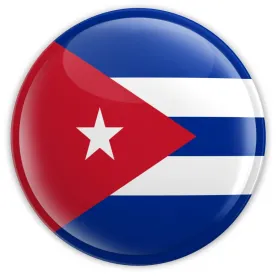Amendment triggers change in EAR de minimis level for controlled US-origin content in foreign made products.
On April 14, US President Barack Obama submitted to Congress the statutorily required report indicating the administration’s intent to rescind Cuba’s State Sponsor of Terrorism designation, including the certification that Cuba has not provided any support for international terrorism during the previous six months and that Cuba has provided assurances that it will not support acts of international terrorism in the future. US Secretary of State John Kerry then made the final decision to rescind Cuba’s designation as a State Sponsor of Terrorism, which became effective on May 29.
As a result, on July 22, the US Department of Commerce amended the Export Administration Regulations (EAR, 15 CFR Parts 732–774) to remove references to Cuba as a State Sponsor of Terrorism and to remove antiterrorism (AT) controls on Cuba.
The EAR applies to all dual-use exports from the United States and to foreign-manufactured items produced outside the United States that contain more than a de minimis amount of controlled US-origin content. These items are said to be “subject to the EAR.”[1] Thus, non-US persons located outside the United States that have custody or control of items “subject to the EAR” must comply with the EAR’s license requirements.
For most items, the de minimis level is 10% if the destination of the foreign-made item is in EAR Country Group E:1 (which now consists of Iran, North Korea, Sudan, and Syria). For countries outside of Country Group E:1, the de minimis level is 25%. .
Cuba had been in Country Group E:1 until July 22, when the key EAR amendment removed Cuba from the E:1 Country Group and thereby triggered an increase in the de minimis level from 10% to 25% for most foreign-manufactured items destined for Cuba. Because Cuba is no longer in Country Group E:1, the 25% de minimis level now also applies to certain foreign-made encryption items destined for Cuba that meet the certain criteria specified in EAR § 734.4(b)(1)(iii). This means that an item manufactured in France that contains 15% by value of US-origin controlled content is no longer “subject to the EAR” or, in other words, is now beyond the Department of Commerce’s jurisdiction and thus, such an item may be exported from France by a non-US person to Cuba without an EAR reexport license. Previously (before July 22), such an item was “subject to the EAR” and thus, that same transaction would have required an EAR reexport license.
Nevertheless, Cuba continues to remain subject to a comprehensive US embargo and, as specified in EAR § 746.2(a), a Department of Commerce license is still required to export or reexport to Cuba any item “subject to the EAR” unless authorized by an EAR license exception. Only those EAR license exceptions listed in EAR § 746.2(a) may be used to export or reexport to Cuba. These requirements of § 746.2(a) apply to all items “subject to the EAR,” including EAR99 items and items that are controlled on the Commerce Control List only for AT reasons. In addition, the US Department of the Treasury’s Office of Foreign Assets Control also continues to maintain broad sanctions against Cuba, which are detailed in 31 CFR Part 515.
Additionally, Cuba continues to remain a prohibited destination under the International Traffic in Arms Regulations (ITAR, 22 CFR Parts 120-130) and there is no de minimis under ITAR. Consequently, foreign-made items destined for Cuba that incorporate any amount of US-origin ITAR-controlled defense articles or technical data cannot be exported or reexported to Cuba.[2]
Foreign-made items destined for Cuba that incorporate US-origin Export Control Classification Number “500 or 600 series” content that were transferred from ITAR jurisdiction to Department of Commerce jurisdiction because of Export Control Reform continue to be “subject to the EAR,” regardless of the level of US-origin content (i.e., there is no de minimis for these items when destined for Cuba). To maintain this exclusion with respect to Cuba, the amended EAR adds Country Group E:2 to the list of destinations (Country Group E:1 and the People’s Republic of China) subject to that exclusion.
The EAR de minimis provisions are complex, and certain other EAR regulatory requirements may have an impact on de minimis calculations.
[1]. See EAR § 734.3.
[2]. See 22 CFR §126.1(a).




 />i
/>i

